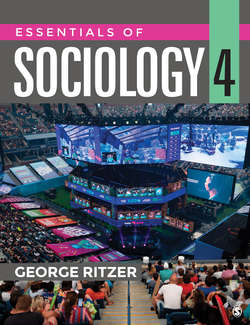Читать книгу Essentials of Sociology - George Ritzer - Страница 114
На сайте Литреса книга снята с продажи.
Cultural Relativism and Ethnocentrism
ОглавлениеMulticulturalism and identity politics are closely related to cultural relativism, which is the idea that aspects of a culture such as norms and values need to be understood within the context of that culture; there are no cultural universals, or universally accepted norms and values. In this view, different cultures simply have different norms and values. There is no basis for saying that one set of norms and values is better than another. Thus, for example, those in Western countries should not judge Islamic women’s use of headscarves. Conversely, those in the Islamic world should not judge Western women who bare their midriffs.
Cultural relativism runs counter to the tendency in many cultures toward ethnocentrism, or the belief that the norms, values, traditions, and material and symbolic aspects of one’s own culture are better than those of other cultures. The tendency toward ethnocentrism both among subcultures within the United States and in cultures throughout the world represents a huge barrier to greater cultural understanding. However, to be fair, a belief in one’s own culture can be of great value to that culture. It gives the people of that culture a sense of pride and identity. Problems arise when ethnocentrism serves as a barrier to understanding other cultures, a source of conflict among cultures, or an excuse for one culture to deny rights or privileges to another.
